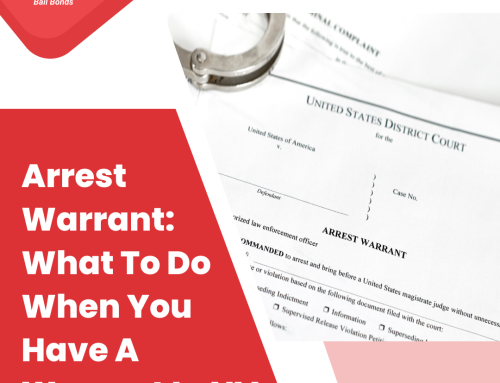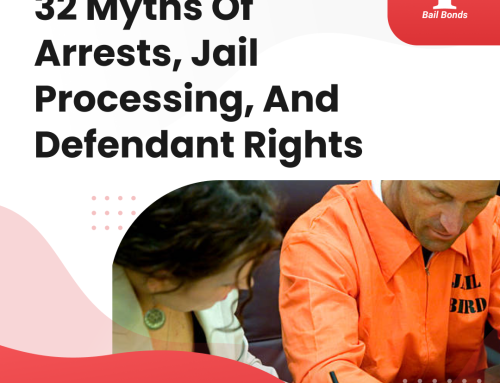There are seven steps to owning a bail bond company, which we’ve outlined for your reference below.
1. Do Research, Plus Make Sure You Qualify For A Bail Bond License
To apply for a bail bond license, you need to meet the following requirements:
- You must be 18 years old or older
- Be financially stable
- Have a high school diploma or GED
- Work with a licensed surety bond company
- Take a pre-licensing course
- Clear or pass the state exam
The bail bond industry is a competitive one, but it’s possible to succeed if you know what your goals are and have a solid game plan. The first question to ask is, “Do I have the skills that I need?” It’s important that your skills match the demands of the industry.
To get an idea of what you’ll face, speak with people who are involved with bail bonds. You’ll also want to research your target demographic and ask the following questions:
- Who do I want to provide bail bonds for?
- Am I looking for misdemeanor cases with quick turnarounds?
- Am I willing to provide bail bonds to defendants with more serious cases?
2. Set The Foundation For Your Business
LLC or Corporation:
To start a bail bond company, you’ll need to register your business as an LLC or corporation.
A few critical pieces of information you’ll need to register your business include:
- SSN
- TIN (Tax Identification Number) from the IRS
- Business bank account information
When registering your business, we strongly recommend that you use a business address and business phone number, as not every jurisdiction allows you to use your personal information.
Plus, there are reasons why you would NOT want to make your personal information public. Privacy and safety, especially in this industry, are always a concern.
Find an Office Location:
Once you have your business name and registration in place, the next step is to find an office location, which can be costly.
The good news is that your office doesn’t need to be fancy. In fact, most bail bond offices are quite small and perhaps even a bit rugged. Cutting down on your expenses by finding a low-cost location is very doable.
As long as you have a physical address that your clients can come to, then any centrally located building within your city will do the trick.
Establish Your Company’s Policies:
After you get your office, you’ll, of course, need to do other important things, like establishing your company’s ethos, creating company policy, and deciding what forms and contracts you will use.
Finally, you’ll want to set up a paper or computer tracking system for your clients, contracts, income, and expenses.
3. Get The Pre-licensing Course & Take The Bail Bond License Exam
The pre-licensing course is important since it prepares you to take the bail bonds license exam.
Since pre-license courses vary per state, make sure to verify your specific state’s guidelines before signing up!
Taking The Exam
The next step after finishing your pre-license course is to take the bail bond licensing exam, which will contain several questions related to bail bonds. These questions are not always easy, so you’ll want to study!
4. Apply For A State License
If you qualify for a bail bond license, naturally, the next step is to apply for one. You can find the appropriate bail bond license application by visiting your state’s insurance department’s website.
When applying, you’ll need to pay for and submit the following:
- Licensing Fee
- The result of the licensing exam
- Certificate of sponsorship from a surety company
- A surety bond in an amount determined by the state
Note: You’ll have to renew your license every three years or more, depending on the state in which your company is located. The renewal process requires that you take continuing education courses.
5. Find A Surety Bond Company To Back You Up
Getting insured is an absolute must for bail bond companies.
Trust us, every bail bond company, no matter how well they vet their clients, runs into at least one issue with a defendant who won’t abide by the conditions of their release. If you post a bond for a defendant (especially a hefty sum) and they violate the terms of their release, you will lose money.
Having a surety bond company to back you in such an event is critical to your company’s long-term success.
6. Set Up A High-Risk Merchant Account
Bail bonds are risky because defendants are not always predictable.
Fortunately, you can minimize the financial risk to your business by applying for a high-risk merchant account instead of a standard account.
There are several account processors that you can choose from. Once you’ve made your choice, you’ll need to submit details to them, such as your bank account information, SSN/EIN, sales history (if any), credit score, and company details.
7. Advertise Online
Once you have a solid foundation in place, the next step is to advertise your services.
The bail bonds industry is highly competitive, which is why it is absolutely critical that you have a smart advertising and content marketing strategy in place, as well as a great website.
Further Reading: History of Bail Bonds, Types of Bail Bonds, and More
Bail bonds are a centuries-old concept that developed in response to the need for individuals to be released from custody before they could appear in court. In medieval times, people were often held in captivity until their trial was scheduled, which could take months or even years. This put a lot of strain on the system.
Bail bondsmen, much like insurance companies, stepped in to offer a financial guarantee to the court that the individual would show up for their hearing. If they did not appear, the bail bond holder would be responsible for paying any fines or restitution associated with not appearing.
Over time, the role of bail bondsmen “evolved” into what it is today: providing short-term financial support to individuals who need it while they are waiting for their court date.
What Are the Different Types of Bail Bonds?
Different types of bail bonds exist, and they all have their own set of instances where they may be applicable. The different types of bail bonds generally fall into two main categories: cash bail and surety bail.
However, there are also a number of other types of bail bonds, which we have listed below:
Surety Bail Bonds
Surety bail bonds are a type of insurance that businesses and individuals can purchase to ensure their release from jail or prison. In most cases, the surety bond costs will be paid by the person or organization who is being bailed. The surety company will then agree to assume responsibility for the individual or organization’s return should they not appear in court as promised. This type of bond is often used when a person or organization needs assurance that they will appear in court, but even with financial resources at their disposal, are not able to stand surety for themselves to secure their own release.
Cash Bail Bonds
Cash bail bonds are a type of financial security that can be used to secure the release of someone who is in custody or awaiting trial. The bail bond company pays money to the court system so that the person can be released from custody. Apart from posting bail, the defendant must also meet certain requirements, such as being able to provide identification and proof of residence. Bail bond companies may also request these details to assess the risk that a defendant will not appear in court.
Property Bail Bonds
Property bail bonds are a type of bail bond in which the collateral for the bond is an asset owned by the individual or by the bail bond company that is helping with being bailed out. This can include real estate, cars, boats, and other valuable assets. When a property bail bond is issued, the bail bondsman typically uses an asset of theirs as security for the bond. In some cases with a cash bail bond, a bail bondsman may also ask that the client being bailed out use their property as collateral. In this case, if the person being bailed out fails to appear in court or refuses to pay their debt, the bail bondsman can sell the asset to recover their funds.
Recognizance Bonds
A recognizance bond may be an option for you if you have been arrested and need to post bail. A recognizance bond is a form of bail that requires the defendant to abide by certain conditions while they are awaiting trial. These conditions will secure your release but are also attached to conditions such as staying away from the victim, not visiting the crime scene, surrendering any weapons or drugs, not traveling, etc.
Essentially, a recognizance bail bond is a hall pass that allows you to go home on a promise to appear in court whenever needed. Should you fail to appear as scheduled, you will very likely have a warrant out for your arrest and may be held without bail. Sometimes, personal recognizance bonds are shared by a person (the obligor) with someone (the guarantor) who agrees to be equally responsible for the bond if the obligor fails to appear in court as required by the bond.
Immigration Bonds
These types of bail bonds are a form of financial security for immigrants and their families who may be facing deportation. Immigration bail bonds can provide a temporary measure of safety while the immigrant’s appeal process is ongoing. Immigration bail bonds are a specialized service that requires extensive knowledge of the process if it is to be successful. However, if you work with the right team, you may be able to successfully get an immigration bond.
Conclusion
In the United States, bail bonds are an important part of criminal justice. Bail bond companies provide a service that allows people to get released from jail after they have been arrested. Essentially, a bail bond company helps people who have been charged with a crime get money to clear their bail so they may work and spend time with their families while they are waiting for their trial.
To own a bail bond company is an extremely lucrative business opportunity. With a properly licensed and operational bail bond company, you can provide a valuable service to the community and make an honest living in the process.
Now, if you need some pointers or help getting a bail bond, the team at All n One Bail Bonds is always happy to help. You can reach us anytime. We will help you!
FURTHER READING: How To Bail Someone Out Of Jail Fast





